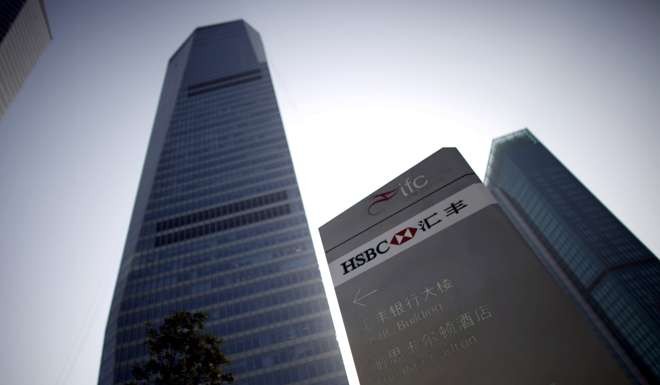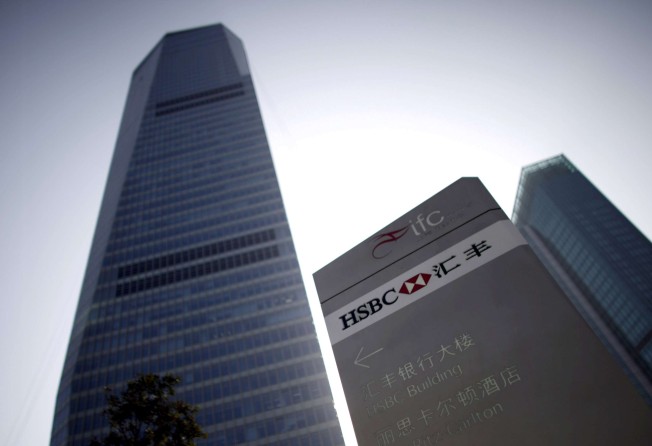
Buying activity among directors rises for third week
Investors should exercise caution towards HSBC as it winds down share buybacks; notable insider buying activity recorded at six other companies

Buying among directors rose for the third straight week while selling fell, based on stock exchange filings from December 19 to 23. A total of 62 companies recorded 371 purchases worth HK$924 million versus 16 firms with 45 disposals worth HK$75 million.
The number of companies and trades on the buying side were sharply up from the previous week’s 41 firms and 275 purchases. The buy value, however, was sharply down from the previous week’s acquisitions worth HK$2.23 billion. On the selling side, the number of companies was up from the previous week’s 11 firms but the number of trades and value were down from the previous week’s 53 disposals worth HK$110 million.
Meanwhile, the buyback activity remained high with 37 companies that posted 162 repurchases worth HK$679 million based on filings from Monday to Thursday. The number of firms and trades were consistent with the previous week’s five-day totals of 40 companies and 199 transactions. The value, however, was sharply down from the previous week’s turnover of HK$3.04 billion.

The huge fall in the buyback value was mainly due to HSBC Holdings as the group acquired a paltry 10,000 shares on December 19 worth HK$0.65 million. That lone trade by HSBC last week was not surprising as the group has nearly reached its buyback goal of HK$19.5 billion for the second half of this year. HSBC embarked on this buyback spree five months ago, picking up 325.3 million shares (via the London Stock Exchange) from August 4 to December 19 worth HK$19.4 billion.
Investors should therefore trade with caution on HSBC shares in the near-term
The trades accounted for 11.4 per cent of the blue chip’s trading volume. The group also bought shares on 90 out of the 95 trading days during that period. The stock rose sharply during that period from HK$52.92 in August to a high of HK$66.50 this month. The buyback by the group of 10,000 shares on December 19 is a strong sign that this recent buyback programme is over as the shares bought is significantly lower than the 3.53 million shares that HSBC bought back on average per day from August 4 to December 16.
Investors should therefore trade with caution on HSBC shares in the near-term as buybacks are an artificial form of price support and any pullback or stoppage of heavy repurchase activities might result in a price fall.
While HSBC has wound down its buyback programme as share prices have fallen this month, other firms have initialized or restarted their buyback programmes.
Satellite telecommunications systems operator and provider APT Satellite Holdings bought back for the first time since 2002 with 1.7 million shares purchased from December 15 to 20 at an average of HK$3.98 each. The trades, which accounted for 39 per cent of the stock’s trading volume, were made on the back of a 35 per cent drop in the share price since August from HK$6.15. The stock is also down since May 2015 from HK$9.30. The group previously acquired 7.46 million shares from July 2000 to October 2002 at HK$4.90 to HK$1.44 each or an average of HK$4.36 each. The stock closed at HK$4.325 on Friday.
Two other technology-related stocks that moved in to support their share prices this month are Phoenix Satellite Television and Technovator International. The purchases were significant as those are their first buybacks since listing. Phoenix Satellite Television acquired 3.85 million shares from December 19 to 22 at an average of HK$1.24 each.
The trades, which accounted for 34 per cent of the stock’s trading volume, were made on the back of the 27 per cent drop in the share price since October from HK$1.69. The stock is also down since May 2015 from HK$3.05. Those are the group’s first buybacks since moving its listing from GEM to the main board in 2008.
Building technology services provider Technovator International, on the other hand, repurchased 86,000 shares on December 22 at HK$2.90 each. The trade was made on the back of a 26 per cent drop in the share price since July from HK$3.94. The counter is also down since May 2015 from HK$8.55. That is the company’s first buyback since listing in 2011. The shares of Phoenix Satellite Televison and Technovator International closed flat from their buyback prices at HK$1.24 and HK$2.90, respectively, on Friday.
Aside from companies buying back to support their share prices, there were several technology-related stocks that recorded insider buys following the fall in their share prices. Among those stocks are Alibaba Health Information Technology and BYD Electronic International.
Chairman Wu Yong Ming of drug industry product identification, authentication and tracking system operator Alibaba Health Information Technology resumed buying at lower than his acquisition price in October with 184,000 shares purchased on December 16 at HK$4.00 each. The trade increased his holding by 17 per cent to 1.262 million shares or 0.02 per cent of the issued capital. He previously acquired an initial 1.078 million shares on October 7 at HK$4.33 each. The purchases by the chairman since October are his first on-market trades since his appointment in April 2015. The acquisitions this quarter were made on the back of the drop in the share price since June from HK$5.92. The counter is also down since April 2015 from HK$13.24. Despite the fall in the share price, the stock is still up since September 2012 from HK$0.38. The stock closed at HK$3.79 on Friday.
Chief executive Wang Nian-qiang of mobile phone components and modules manufacturer BYD Electronic International, on the other hand, resumed buying at lower than his acquisition price earlier this quarter with 2 million shares purchased from December 15 to 20 at an average of HK$5.90 each. The trades, which accounted for 9 per cent of the stock’s trading volume, increased his holding by 15 per cent to 15.602 million shares or 0.69 per cent of the issued capital. The purchases were made on the back of the 18 per cent drop in the share price since November from HK$7.22. He previously acquired 2.5 million shares from October 31 to November 1 at an average of HK$6.12 each.
Prior to his purchases this year, the CEO acquired 2.5 million shares from August to September 2015 at HK$5.00 to HK$4.25 each or an average of HK$4.85 each. The purchases by Wang since August 2015 are his first on-market trades since his appointment in April 2015. The stock closed at HK$5.90 on Friday.
Not all insiders were in price support mode last week as the chairmen of Da Ming International and Jingrui Holdings bought shares following the sharp rebound in their companies’ share prices.
Chairman and chief executive Zhou Keming recorded the first on-market trades by a director in stainless steel and carbon steel products processor and distributor Da Ming International since the stock was listed in December 2010 with 3.47 million shares purchased from December 16 to 21 at HK$3.71 to HK$3.88 each or an average of HK$3.77 each. The trades, which accounted for 52 per cent of the stock’s trading volume, increased his holding to 744.431 million shares or 65.23 per cent of the issued capital. The purchases were made on the back of the 112 per cent rebound in the share price since December 2015 from HK$1.78. The counter is also up since August 2012 from HK$0.90. The stock closed at HK$3.79 on Friday.
Lastly, Jingrui Holdings’ co-chairman and chief executive Yan Hao recorded his first on-market trade in the property developer since July 2014 with 25.7 million shares purchased on December 21 at HK$3.30 each. The trade increased his holding by 5 per cent to 505.92 million shares or 39.18 per cent of the issued capital. The trade was made on the back of the 24 per cent rebound in the share price since June from HK$2.66. Despite the rebound in the share price, the counter is still down since August 2014 from HK$3.87. He previously acquired 476,000 shares in July 2014 at HK$3.69 each. The purchases by the CEO since July 2014 are the first on-market trades by a director of the company since the stock was listed in October 2013. The purchases were made at prices below the IPO offer of HK$4.45. The stock closed at HK$2.99 on Friday.
Robert Halili is managing director of Asia Insider
